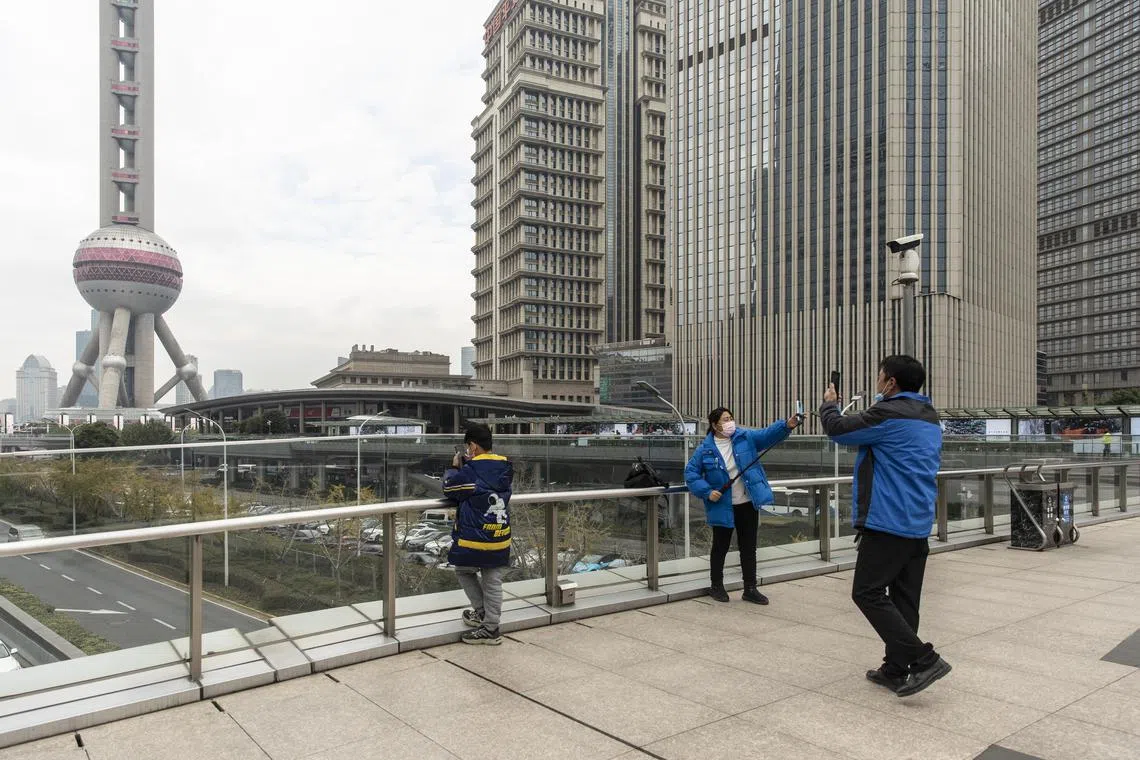Even as China eases Covid-19 rules, some youth still fear a grim future
Sign up now: Get insights on Asia's fast-moving developments

Sightseers at a walkway in the Lujiazui Financial District in Shanghai, on Dec 8, 2022.
PHOTO: NYTIMES
BEIJING – Ms Mandy Liu, a 21-year-old university student in Beijing, believes that anyone who has lived in China during the Covid-19 pandemic can see that the country’s future is looking increasingly uncertain.
Covid-19 restrictions were stifling, and employment opportunities were grim.
Many young people had followed what the Communist Party told them to do, only to be left disillusioned, Ms Liu said. “What we are seeing is that people are struggling to survive.”
That discontent bubbled over in recent weeks as throngs of students, job seekers and young professionals stormed the streets in major cities across China to protest against the government’s iron-fisted Covid-19 rules. The unrest brought into view the party’s longstanding concern that a shortage of jobs and economic opportunities for young people posed a threat to social stability.
Last Wednesday, Beijing caved to the protesters’ demands and relaxed many of its zero-Covid restrictions.
Youth unemployment is still close to the highest levels on record, with another 11.6 million college graduates preparing to join the workforce in 2023.
Covid-19 restrictions drained momentum from an economy already reeling from a collapse in the property market.
A government crackdown on fast-growing industries such as technology and private education has sapped opportunities in the private sector,
The narrowing prospects have betrayed the expectations of a generation of young people raised in relative prosperity as beneficiaries of an ascendant economy that provided steady employment and rising incomes for their parents. Students were told that by studying hard, they, too, could enjoy a better life.
“The promise was if you educate yourself, you will get a good-paying job. That is no longer materialising,” said Dr Max Zenglein, chief economist at the Mercator Institute for China Studies in Berlin. “To be the first generation that is going to be disappointed, that creates a lot of emotional pressure.” NYTIMES


